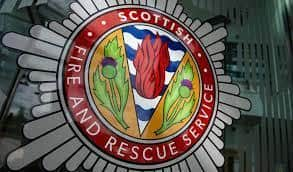Firefighters can help drug death crisis, but cannot solve it - Martyn McLaughlin
That number, lest anyone has forgotten, was the latest ignominious death tally in 2020. It set a new record and, as the recent resignation of Professor Catriona Matheson as the chair of a government taskforce into the issue demonstrates, Scotland has yet to make meaningful progress.
Any initiative that can prevent drug deaths is good news, and the opportunity for firefighters to carry naloxone – a nasal spray that can reverse the effects of an opioid overdose – is one that will save lives.
Advertisement
Hide AdAdvertisement
Hide AdA similar scheme has been in place across swathes of Canada, where fire and rescue staff are at the frontline of the opioid epidemic. It has proved largely successful, although not without its challenges, with concerns raised over training and protocols.
Given the Scottish initiative is voluntary, it is vital any similar problems are ironed out from the get-go. When the proposal was first mooted last autumn, the Fire Brigades Union expressed misgivings that it would overextend the knowledge and experience of its members when it came to medical emergency responses, while also pointing out its members lack the authority or training to restrain anyone who becomes aggressive.
A similar suite of concerns was flagged by the Scottish Police Federation when Police Scotland rolled out its national naloxone pilot project. Back then the federation cautioned rank-and-file officers were not trained diagnosticians.
Both points of view are valid, yet the raw statistics speak to the success of the police initiative – officers administered naloxone nearly 40 times in the first four months of the pilot. If the Scottish Fire and Rescue Service programme is equally effective, and unions are consulted at every step, it will be worth the £90,000 investment.


What matters most is a recognition these are just two modest tools in the national response to Scotland’s ongoing drug death crisis. Much more needs to be done, and the fact Prof Matheson stepped down from her role because she refused to be rushed by impatient ministers served a timely warning that sometimes the politics can take precedence over public health.
A message from the editor:
Thank you for reading this article. We're more reliant on your support than ever as the shift in consumer habits brought about by coronavirus impacts our advertisers. If you haven't already please consider supporting our trusted, fact-checked journalism by taking out a digital subscription.
Comments
Want to join the conversation? Please or to comment on this article.
